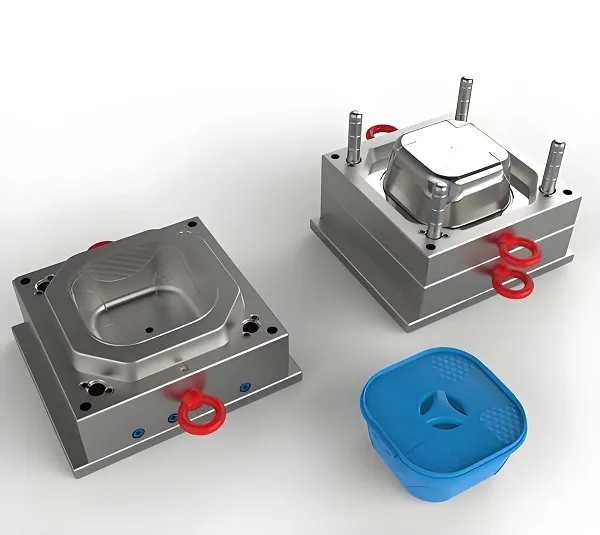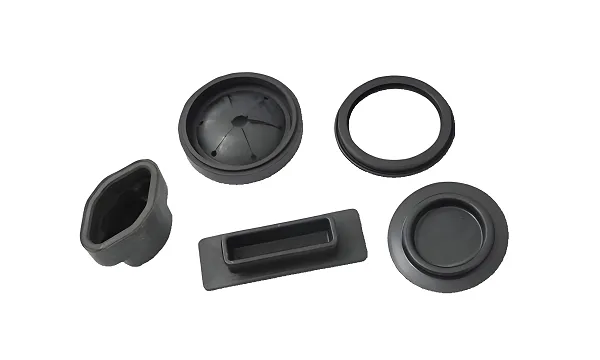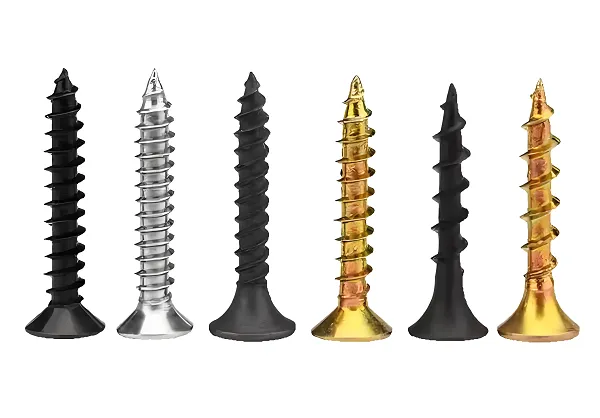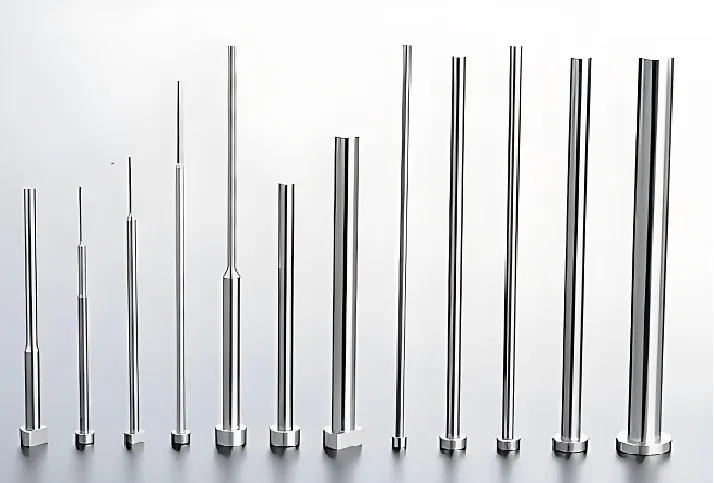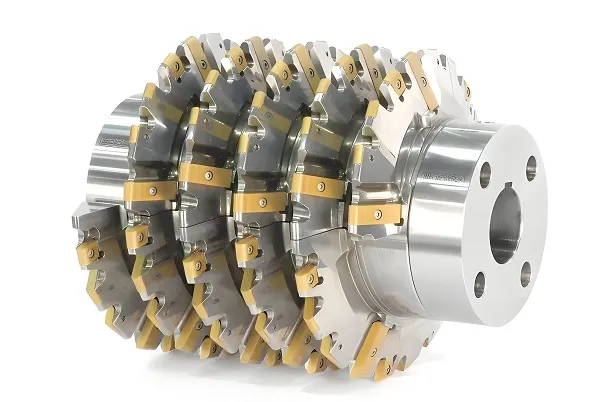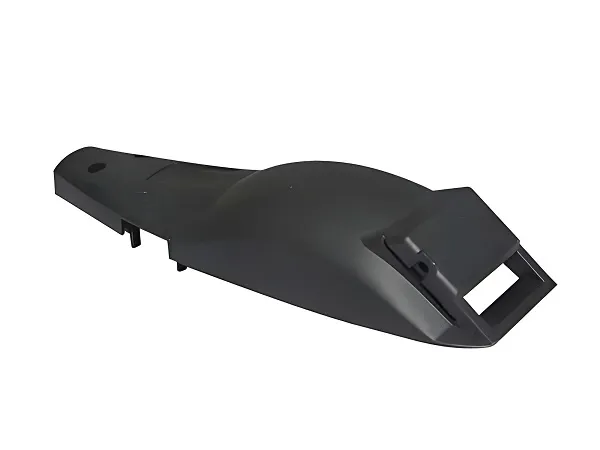Injection molding screws are a kind of fasteners produced by injection molding process, in which molten plastic is injected into the mold through high temperature and high pressure, and then cooled and solidified to form screws with specific shapes and functions. Compared with traditional metal screws, injection molding screws have the advantages of light weight, low cost, good insulation, corrosion resistance, etc. They are widely used in electronics, electrical appliances, automobiles, medical equipment and other fields.
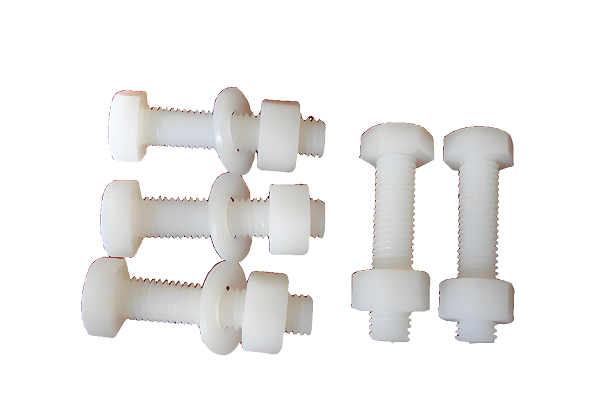
1. Injection molding screw production process
Preparation of raw materials: Selection of high-quality plastic raw materials in line with national standards, such as nylon, polypropylene (PP), polycarbonate (PC), etc., to ensure the purity and stability of raw materials.
Mould design and manufacture: design the specific size, shape and thread specifications of the screws according to the customer’s needs, and manufacture precision injection molds. Mold manufacturing needs to consider the cooling system, exhaust system and other factors to ensure the quality of injection molding.
Injection molding: The prepared plastic raw materials are heated to molten state and injected into the mold through the injection molding machine at high pressure. Temperature, pressure and injection speed are strictly controlled during the injection process to ensure that the plastic fills the mold uniformly and cools and solidifies quickly.
Demolding and post-processing: After the plastic has cooled and cured, open the mold to remove the screws. Deburring, trimming and other post-processing procedures are carried out on the removed screws to improve the product appearance and dimensional accuracy.
Quality inspection: Strict quality inspection of the finished screws, including appearance inspection, size measurement, performance test, etc., to ensure that the products meet customer requirements and industry standards.
2. Injection molding screw customization
Size customization: According to the drawings or samples provided by customers, we can customize screws with different lengths, diameters and thread specifications.
Material selection: Provide a variety of plastic materials for customers to choose, such as nylon, PP, PC, etc., to meet the needs of different application scenarios on the material performance.
Surface treatment: Surface treatment, such as painting, plating, etc., can be carried out according to customer requirements to improve the aesthetics and corrosion resistance of the screws.
Packaging and Transportation: Provide customized packaging solutions to ensure that the screws are not damaged during transportation. At the same time, provide fast and accurate logistics services to meet customer requirements for delivery.
3. Injection molding screw material introduction
Material: Nylon (Nylon), polypropylene (PP), polycarbonate (PC) and so on.
Insulation: injection molding screws have good insulation properties, suitable for occasions requiring electrical isolation.
Corrosion resistance: plastic materials have good corrosion resistance, can be used for a long time in humid, acid and alkali and other harsh environments without easy rust.
Light weight and high strength: compared with traditional metal screws, injection molding screws have a lighter weight and higher strength, suitable for occasions with strict requirements on weight.
Good processing performance: injection molding process makes the manufacturing process of screws simple, efficient, and easy to realize the complex shape and structure of the custom.
4. Injection molding screw characteristics of different materials
4.1 Nylon screws:
Tensile strength: ≥ 50MPa
Operating temperature: -40°C to +120°C
Insulation resistance: ≥10^12Ω
Corrosion resistance: excellent (acid, alkali, salt, etc.)
4.2 PP screws:
Tensile strength: ≥30MPa
Use temperature: -30°C to +100°C
Hydrolysis resistance: excellent (not easy to deform when used in a humid environment for a long time)
Chemical stability: good (weak acid and alkali resistance)
4.3PC screws:
Tensile strength: ≥60MPa
Use temperature: -40°C to +125°C
Transparency: high (suitable for the need to observe the internal structure of the occasion)
Dimensional stability: excellent (not easily affected by temperature changes)
Custom Injection Molding Screws Service FAQ
Q: How can I customize injection molded screws?
A: You can provide specific information on size, shape, material requirements and quantity, etc. Our professional team will design and produce the molds according to your needs.
Q: What is the lead time for injection molded screws?
A: Delivery time depends on the complexity of the product, the quantity to be produced and our production scheduling. Generally, standard products have shorter lead times, while customized products may take longer.
Q: How do you ensure the quality of injection molded screws?
A: We strictly control all aspects of raw materials, mold design, injection molding, post-processing and quality inspection to ensure that each batch of products meets customer requirements and industry standards.
Q: Can you provide samples for testing?
A: Sure. Before formal production, we can provide samples for you to test to ensure that the products meet your requirements.
Q: How to deal with after-sale problems of injection molded screws?
A: Please feel free to contact our after-sales service team if you encounter any problems during the use. We will provide you with professional technical support and solutions.

